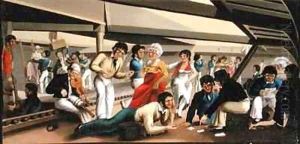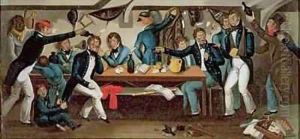Charles Random DeBerenger Paintings
Charles Random de Berenger, Baron de Beaufain, was an intriguing figure in British history known for his diverse talents and notorious for his involvement in one of the 19th century's most infamous frauds. Born in 1773, his life was a tapestry of adventure, invention, and scandal. Despite claiming the title of Baron de Beaufain, there is little evidence to support his nobility; this aspect of his persona, much like many others, was shrouded in mystery and fabrication.
DeBerenger was a man of many skills and professions. He was an author, with works focusing on topics as varied as military tactics, sportsmanship, and personal defense. His publications, which include titles such as 'Helps and Hints how to Protect Life and Property' (1835), reflect his keen interest in self-defense and the use of firearms, a topic on which he was considered somewhat of an authority in his time. Beyond his literary contributions, he was also an inventor, with patents to his name that attest to his inventive mind.
However, the most infamous chapter in DeBerenger's life came in 1814, with his involvement in the Great Stock Exchange Fraud. He played a central role in a scheme that temporarily manipulated the London Stock Exchange by spreading false news of Napoleon's defeat, which caused stocks to soar. Upon the truth being revealed, the market crashed, leading to significant financial losses for many. DeBerenger was subsequently arrested, tried, and found guilty for his part in the fraud, resulting in a prison sentence.
After serving his sentence, DeBerenger attempted to rebuild his life but remained a controversial figure. His later years were spent continuing his work as an author and inventor, though he never fully escaped the shadow of his earlier scandal. Charles Random de Berenger died in 1842, leaving behind a legacy marked by both ingenuity and notoriety. His life story is a fascinating glimpse into the complexities of social and financial maneuverings in early 19th century Britain.

